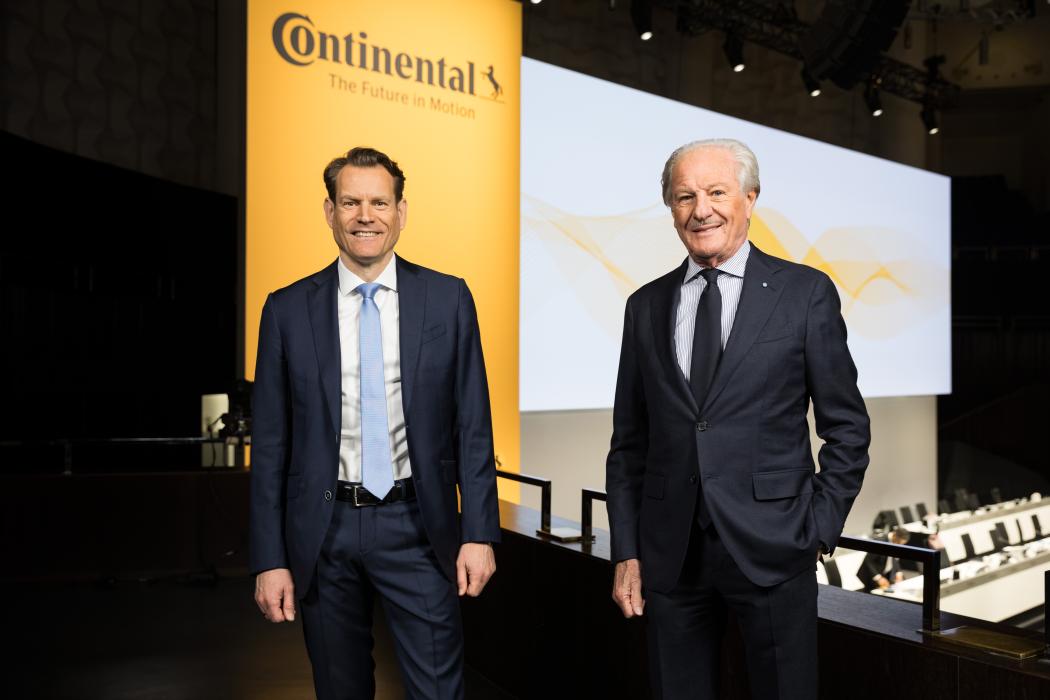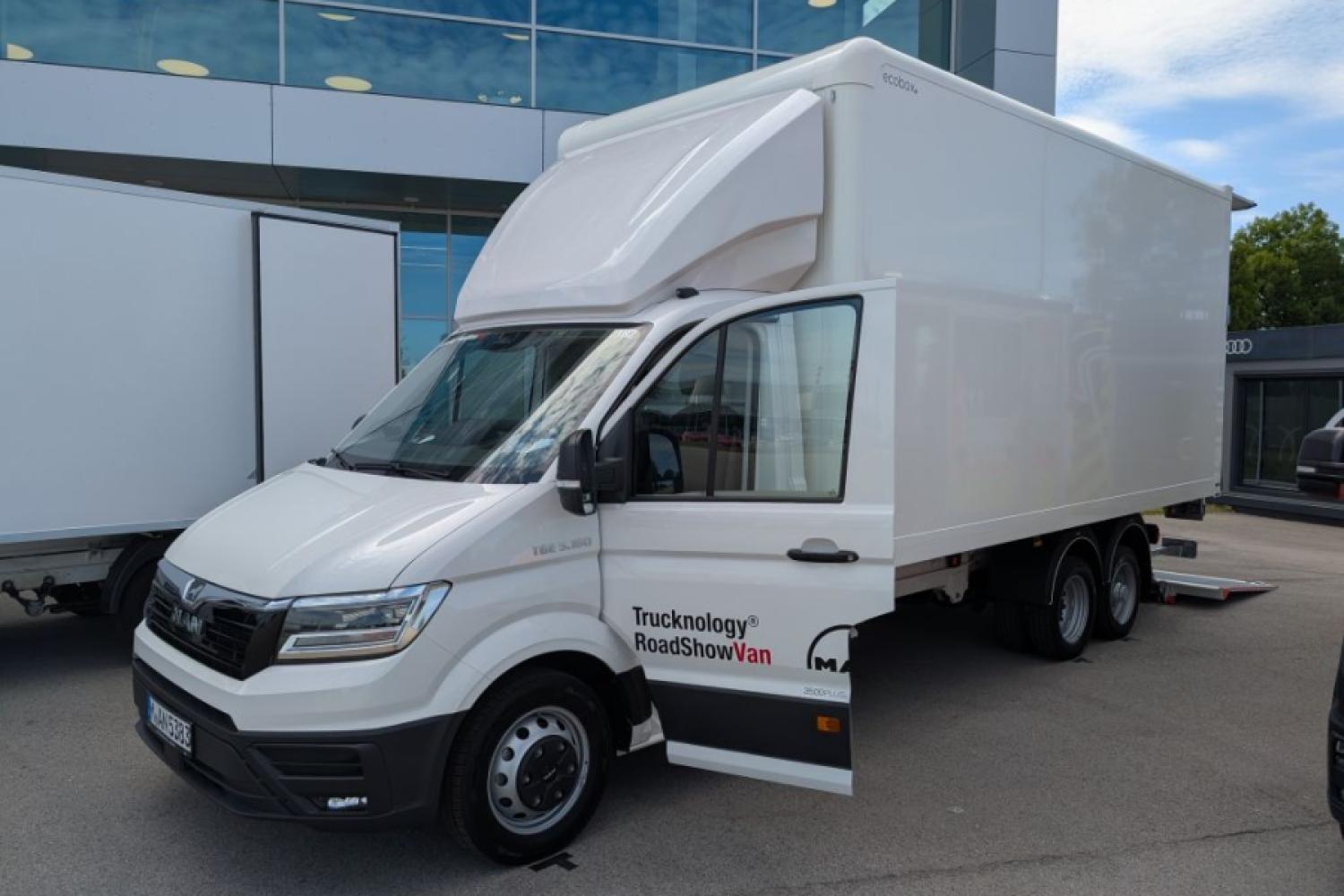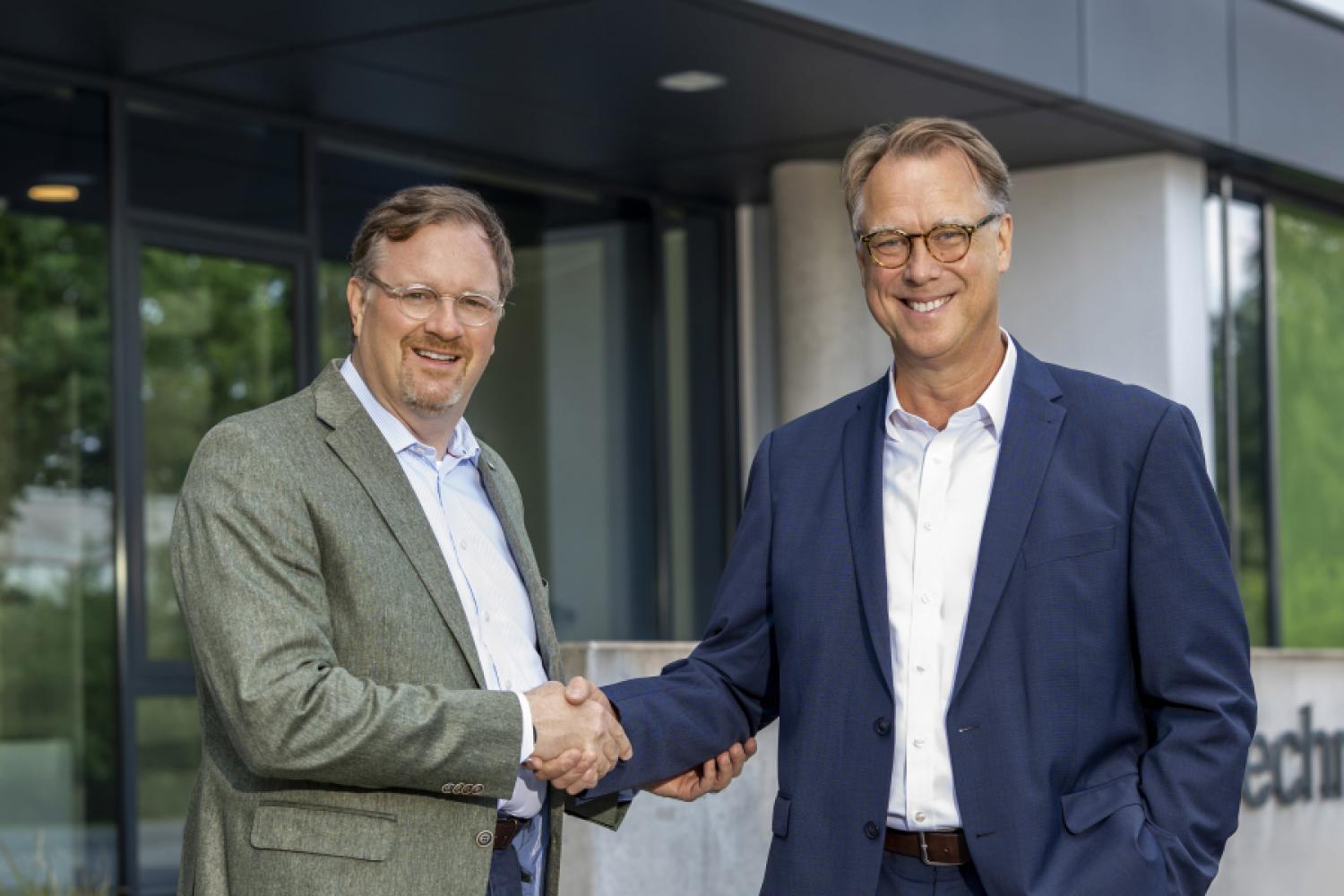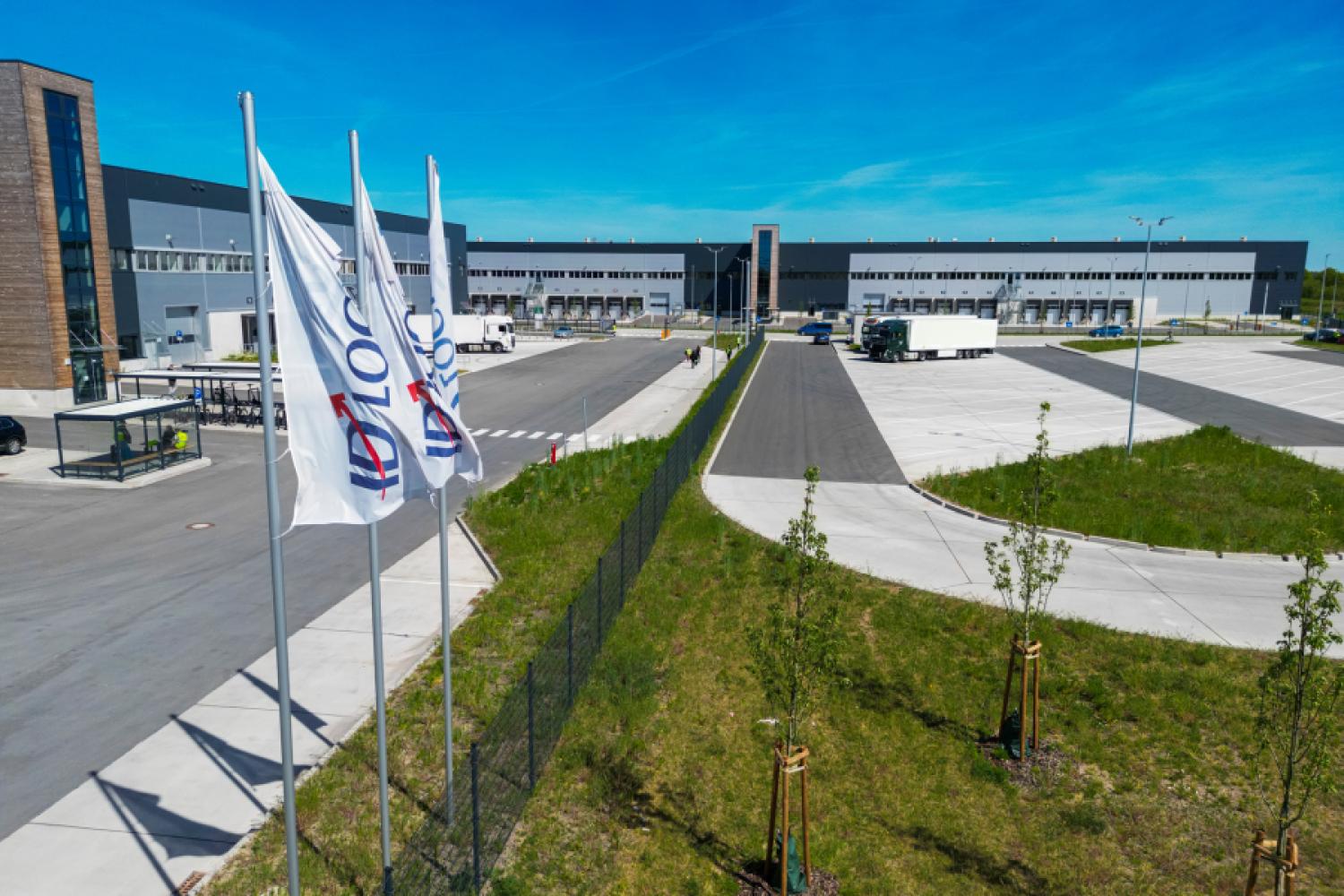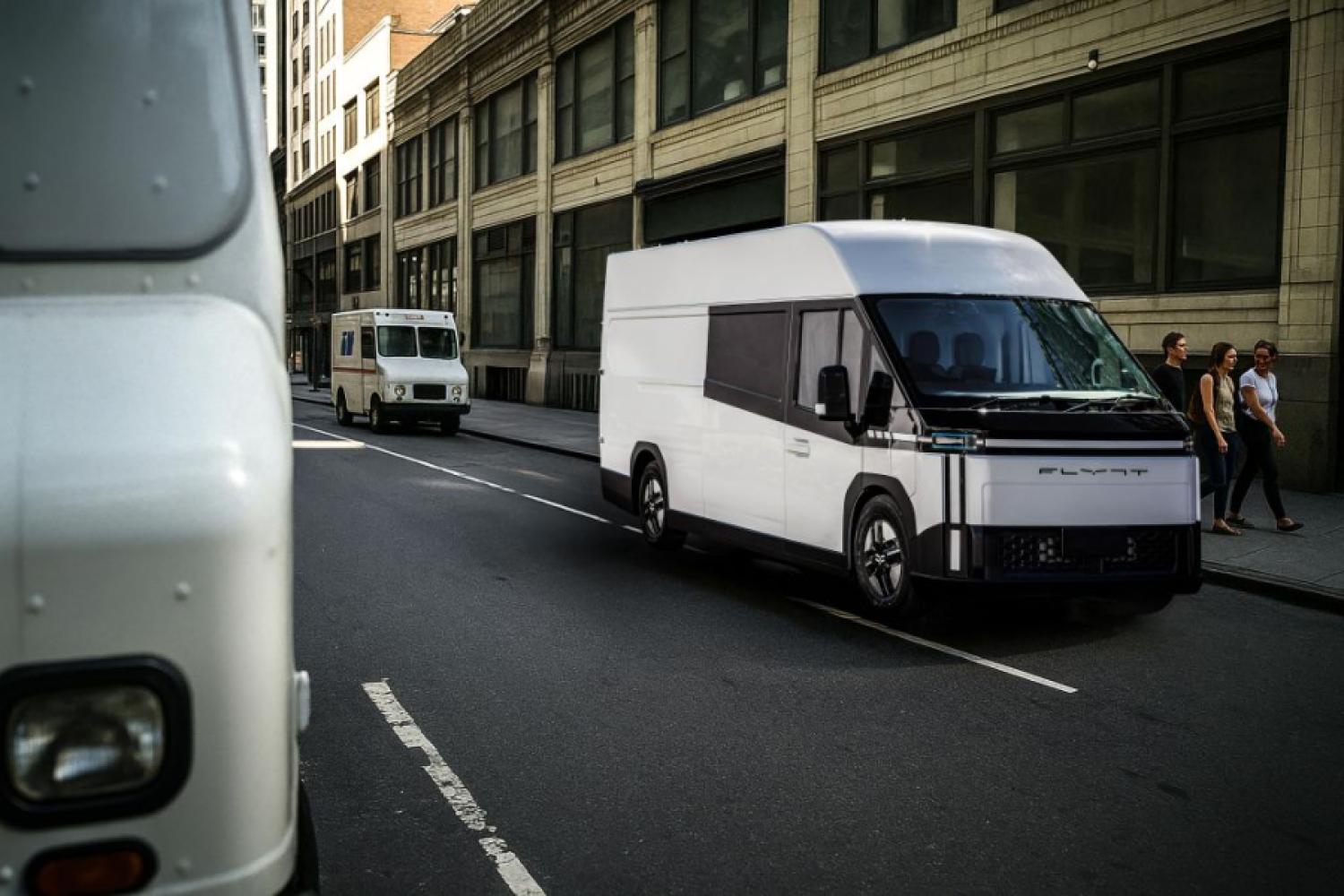As announced at the start of the current auto show in Shanghai, Continental is not only separating from its ContiTech division but also from the supplier division Automotive, which will be renamed Aumovio and become independent. The IPO is planned for September 2025. After the planned spin-off of ContiTech in 2026, only the tire business "Tires" will remain from the original three divisions. Accelerated global developments require corresponding adaptability, explained Continental CEO Nikolai Setzer, justifying the consolidation of the group at the annual general meeting on April 25, 2025: "Change - that is part of our identity." In his speech, the manager urged shareholders to bravely face the "challenges of the times" - just as Continental had repeatedly demonstrated in its success story.
Setzer gave an overview of the current situation behind the restructuring: it was time to realign the company because the previous divisions Automotive, Tires, and ContiTech had largely already proven themselves independently in the market: "Now they have the maturity to stand independently from their respective positions of strength in competition." The move to independence is practically a result of the main goal of "sustainably creating value" and offers new opportunities, according to the press release about the event.
Like other supplier corporations in Germany, Continental is heavily affected by the current crisis in the automotive industry and sees itself forced to make significant personnel cuts. According to media reports, the total number of planned worldwide job cuts, announced since last year, has currently increased to around 10,000. According to its own information, the tire and technology company employed about 203,000 people worldwide in 2023. Currently, the company reports about 190,000.
Conti Focuses on Tires
In addition to technological change and adjustments to energy supply, the unpredictable global developments are also challenging companies in the mobility sector. To stabilize, the company demands flexibility and a willingness to change in order to rejuvenate. Setzer succinctly summarized the strategy before the annual general meeting: "Today we want to change Continental together. And unleash new forces."
These changes now involve outsourcing the Automotive division, to be operated under the name Aumovio, by September 2025. The following year, the division focused on industrial technologies with an emphasis on material development and electronic data
exchange, ContiTech, is also to be spun off. According to the press release, the Hanover-based group will then only have the "Tires" division, which in the future will focus entirely on the global tire business under the name Continental AG. Setzer: "This way we create three strong, independent champions."
Transforming through Streamlining
Accelerated global developments, geopolitical challenges, and "changing supply chains," according to the CEO, require adaptability to assert oneself in the market. Additionally, the increased competition and pressure to adapt due to growing technological developments demand quick responsiveness through implementable, clear structures:
"Flexible and focused companies seize opportunities better than complex organizations."
According to Setzer, the tire group has "well-prepared its transformation" and expanded the product portfolio of the three business areas accordingly. Evidence: despite challenging external influences, the year 2024, with a focus on costs, efficiency, and increased technological innovations, is overall considered positive.
Aumovio: On the Rise with Future Technologies
The newly renamed division Automotive, now operating as Aumovio, is one of the dominant suppliers in the key markets with a forward-looking product portfolio, it further states. This positioning offers the company opportunities in light of planned independence. Philipp von Hirschheydt, member of the board of the previous Automotive division and future CEO of Aumovio, emphasized that under the new name, top technologies "around software-based mobility" are being pooled - and the corresponding solutions, as already developed, form the product portfolio for the new beginning as Aumovio: "We have everything we need to be sustainably successful as an independent company."
The Future: Bundling Electronic Vehicle Systems
Especially in the Automotive sector, according to the report, Continental recorded orders "from almost all major car manufacturers" worth around 19 billion euros in 2024. An example of cutting-edge technology is the high-performance computer (HPC) for Volkswagen's all-electric ID models, which, in addition to around ten car versions, also includes a light commercial vehicle with the ID.Buzz. Corresponding solutions are of great significance for the increasing number of software-based assistance systems, controlling, among other things, the thermal management particularly important for electric vehicles, and enabling autonomous driving.
This latter technology seems to be gaining increasing importance among industry participants, with research into corresponding solutions being increasingly intensified in recent years. Not only VW
Commercial Vehicles have long collaborated with other industry players in the field of autonomous mobility, currently planning to introduce self-driving ID.Buzz in public transport and working on "Level-4" fleet vehicles. Also in the area of heavy transport, corresponding projects, often funded by the federal government, are running or have taken place, both for self-driving trucks themselves and for the monitoring of related components like trailers.
More Complexity Requires More Adaptability
High-performance computers form the control center of the many electronic systems in vehicles, practically forming the foundation for future mobility. Regarding supercomputers, these are "control centers of modern vehicles," taking over and monitoring everything from the control of functions like airbags, cellular communication, to climate control. However, the company's strategy also includes orienting itself towards the requirements of respective regional conditions, with implications for product offerings and adaptability. As von Hirschheydt states:
"The future of mobility has many facets. To do justice to them and create more value, Aumovio will adapt more agilely to regional markets."
Autonomous Systems for Mass Production
The main elements of Aumovio's portfolio are accordingly supposed to include not just primarily software and hardware solutions, displays, and braking systems, but above all "technologies for autonomous driving" are to be developed: this includes, for example, self-driving trucks, which are currently being worked on in collaboration with Aurora in the USA: first trucks are expected to drive autonomously on highways there as of 2027. Continental began cooperating with the American company, founded in 2017 for the development of self-driving transport technologies, in 2023. In early 2024, they defined the development roadmap, aiming for the introduction of the world's first operational autonomous truck system of SAE (Society of Automotive Engineers) Level 4 in high volumes.
The cooperation partners aim to develop an "industrial-grade fallback system" that steps in for safety if functions fail in the driverless truck. The fallback system, as a "secondary computer," is among the "built-in redundancies" intended to ensure safe operation in autonomous vehicles in case of a defect in the primary system. At the presentation of the planned "Aurora Driver" for driverless mobility, Philipp von Hirschheydt said back then: "Technologies for autonomous mobility offer the greatest opportunity to change the driving experience since the invention of the
automobile." They aim to offer maintenance-friendly, autonomous truck systems "demanded by customers."
ContiTech Products for Data Centers and Hydrogen Refueling Infrastructure
The ContiTech division, specializing in industrial materials, also promises good business developments following its planned independence. According to Continental, the high-tech division holds significant value creation potential, evidenced by a recent order for "the world's strongest conveyor belt": "With a maximum width of 3.2 meters, it can haul a total weight of 3,200 tons. That's equivalent to more than 300,000 car tires," the report states.
However, even cutting-edge tech developments form a playing field for the group, established over 150 years ago and made famous with its rubber products: the proven rubber and plastic products promise strong market positioning, for example as component suppliers for cooling systems used by high-performance data centers serving various industries such as medicine, research, chemicals, or the automotive industry. Handling ever-growing data volumes, for example through the use of artificial intelligence, consumes a lot of energy. Accordingly, there is a rising demand for special hoses that protect the servers in data centers from heat damage - and in the field of rubber products, tire company Conti is practically unmatchable.
The company also sees another area of action for ContiTech in hydrogen refueling: "This energy carrier imposes high material demands" - here too, the hoses must withstand strong pressures, in this case particularly high ones, while maintaining maximum flexibility.
According to Setzer, ContiTech is expected to account for 80 percent of the industrial business in the future, which is why the business field Original Equipment Solutions within the division - each of the three main divisions Automotive, ContiTech, and Tires is divided into five business units - is also being sold, namely the business with rubber products for automakers.
Expanding the Leading Role as a Tire Specialist
The future Continental AG, on the other hand, will focus solely on premium tires, which consistently achieve top marks in various independent tests - both in terms of performance and comfort and sustainability. Recently, the company was named Tire Manufacturer of the Year. And finally, the 18 out of 20 top-volume manufacturers of electric vehicles also prove that the tire company is highly regarded globally in its core area, according
